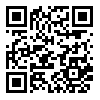مجله رویش روانشناسی از دادن گواهیهای کاغذی معذور است. لطفا تقاضا نکنید. همه گواهی ها در صفحه شخصی کاربران موجود است.
year 10, Issue 8 (Atumn 2021 2021)
Rooyesh 2021, 10(8): 175-184 |
Back to browse issues page
Download citation:
BibTeX | RIS | EndNote | Medlars | ProCite | Reference Manager | RefWorks
Send citation to:



BibTeX | RIS | EndNote | Medlars | ProCite | Reference Manager | RefWorks
Send citation to:
Niazi Mirk J, Beirami E, Rostami L, Najafi Ziyazi M. (2021). The role of alexithymia, rumination and self-criticism in predicting self-harm behaviors in industrial drug users. Rooyesh. 10(8), 175-184.
URL: http://frooyesh.ir/article-1-2808-en.html
URL: http://frooyesh.ir/article-1-2808-en.html
1- M.Sc., General Psychology, Mohaghegh Ardabili University, Iran. , Jila.neiazi@gmail.com
2- M.Sc., Clinical Psychology, Islamic Azad University, Zanjan Branch, Iran.
3- M.Sc., Clinical Psychology, Islamic Azad University, Sanandaj Branch, Iran.
4- M.Sc., General Psychology, Islamic Azad University, North Tehran Branch, Iran.
2- M.Sc., Clinical Psychology, Islamic Azad University, Zanjan Branch, Iran.
3- M.Sc., Clinical Psychology, Islamic Azad University, Sanandaj Branch, Iran.
4- M.Sc., General Psychology, Islamic Azad University, North Tehran Branch, Iran.
Abstract: (2464 Views)
The aim of the present study was to investigate the role of alexithymia, rumination, and self-criticism in predicting self-harming behaviors in industrial drug users. This research was descriptive and correlational. The statistical population of this study was all industrial drug users referring to Transient Harm Reduction Centers (DIC) in District 12 of Tehran in the second half of 1399, from which 90 people were selected by convenience sampling. Research instruments included a self-harm questionnaire (Sansone et al., 1998), an Alexithymic scale (Bagby et al., 1994), a rumination questionnaire (Ghorbani et al., 2008), and a self-critical questionnaire (Gilbert et al., 2004). Pearson correlation and simultaneous linear regression were used to analyze the data. The results showed that alexithymia, rumination, and self-criticism had a positive and significant relationship with self-harm behaviors (P <0.05). Regression results also showed that alexithymia, rumination, and self-criticism were able to predict 0.45 self-harm behaviors in industrial drug users (P <0.05). Given that self-harming behavior in drug users is affected by alexithymia, rumination, and self-criticism, holding training workshops based on these concepts in this group of people seems necessary.
Type of Article: Research |
Subject:
General Psychology
Received: 2021/04/30 | Accepted: 2021/05/20 | ePublished: 2021/11/1
Received: 2021/04/30 | Accepted: 2021/05/20 | ePublished: 2021/11/1
Send email to the article author
| Rights and permissions | |
 |
This work is licensed under a Creative Commons Attribution-NonCommercial 4.0 International License. |







